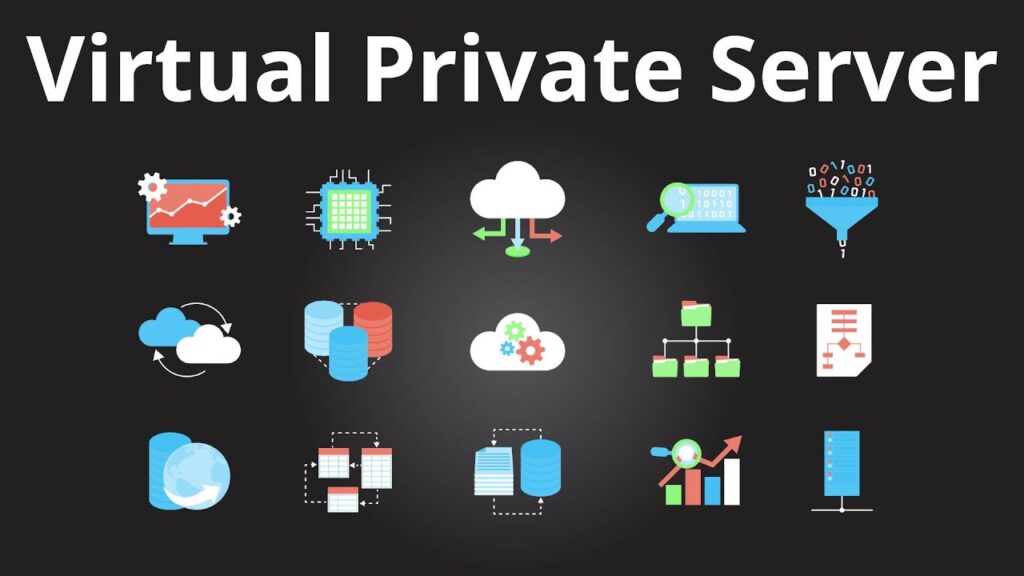VPS Meanings, VPS Explanation and Advantages of VPS

Internet is a marvelous thing that ever invented in this modern era. On the internet, people can do whatever they want to do, starting from socializing, shares ideas, selling products or services, sharing entertainment content, and actualize themselves through the knowledge provided on the internet. The development of the devices to access the internet also affects the new trend and leads the interned as one of the everyday needs for most people. Since the world’s trend has changed to the digital environment, this phenomenon also pushed all the people to make a website as the platforms for entertainment, business, and information. In running a website, you need to understand that it can be accessed online by using the hosting server. The hosting server itself has a lot of different types such as colocation, shared hosting, cloud hosting, VPS (Virtual Private Server), and also the dedicated server. We will not be going to discuss those types one by one due to the limited time. In this article, the focus that becomes the main topic is VPS (Virtual Private Server). Hence in the below section, you will find the information about what is VPS, what are the benefits of VPS, and the indicator when you should use the VPS as your hosting server. Let’s get down below to be fully informed about VPS (Virtual Private Server).
What is VPS?

VPS is an acronym for Virtual Private Server. VPS (Virtual Private Server) is a virtualized computer that has a function as your website’s server in the website hosting activity. The performance that can give to you also perfectly mimics the real physical computers starting from the hardware components, the access to the software configuration, and many more.
The way it is working on your website hosting activity is also similar to the capability of a physical server. Here is the detail of the mechanism from the hosting action from VPS (Virtual Private Server) to your website hosting activity: First, the virtual server will become the receiver that catches the message or request signal from the internet user’s computer. Then, the message or request signal will be encrypted and verified whether it is correct or not. After the verification process, the virtual computer will search the specific files or pages demanded by the sender. Once it is found on its database, the required files and page will be delivered back to the sender’s computer via the internet. Internet is the main aspect that makes the process of distribution on the website hosting can be running.
The performance of the VPS (Virtual Private Server) is also affected by the hardware. For example, some of VPS (Virtual Private Server) is still using the HDD (Hard Disk Drive) that has several problems in its application as the database hardware. HDD is also renowned for having lower durability and riskier to experience the overheat compared with its latest version of disk space hardware named SSD (Solid State Drive) that having the faster performance compared with HDD (Hard Disk Drive).
What Are the Advantages of a VPS?

There is a lot of advantages that you can get from the VPS server. In this section of the article, we will talk about the advantages that you can get from using a VPS server as your hosting server. Actually, there is a bunch of advantages, but we will only focus on the three major advantages by using the VPS server on your hosting activity categorized as performance, access, and also security.
VPS (Virtual Private Server) Performance
If you are looking for a hosting server that is able to bring you stable, fast, and reliable performance, VPS (Virtual Private Server) is the perfect option for you to choose.
A website hosting with https://www.vpsserver.com/ is the proven ability to conduct a fast load speed with minimum delay or constraints because VPS (Virtual Private Server) provides the dedicated resource that can only be used for a single client.
Most of the cases on cloud hosting and shared hosting are the problem of the slowing down speed performance due to the high traffic to its website that makes the resource over the limit.
VPS (Virtual Private Server) Access
VPS (Virtual Private Server) provides the feature named full-root access. This feature is helping the users to be able to manage the software in their VPS (Virtual Private Server). So, whenever you or your technicians need to install, change, or uninstall software, you can do that immediately without waiting for permission from the VPS (Virtual Private Server) provider. This feature is only available on the VPS (Virtual Private Server) and dedicated server. You cannot get access to your server if you are using the cloud or shared hosting. With this feature, you can also change the operating system too.
VPS (Virtual Private Server) Security
On the security aspect, VPS (Virtual Private Server) provider the best security ever on your website hosting activity because you and the other clients that are using the service from VPS (Virtual Private Server) provider are not placed in a single place and accessing the same resource. You can get the other extra security if you choose the managed VPS (Virtual Private Server) plan. On the managed VPS, the provider will help you to secure your website by doing the regular checkup and assist you whenever you find a problem related to the security in your server. Managed VPS is better than the unmanaged VPS because the service and the plans are way more comprehended.
Do You Need a Virtual Private Server?

To answer this question, you better to reflecting yourself first. If you are experiencing a massive development in your business and you need the next level hosting server, you are good to go with VPS (Virtual Private Server). Suppose you are feeling sick of facing the downtime that often happened on your hosting activity, or you need advanced security for your data in the digital environment. In that case, the VPS server is the one that you need to achieve a better performance in serving internet users from around the world.


